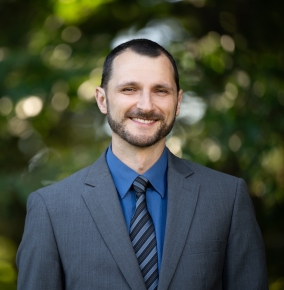Vitaliy Gleyzer

How did you become interested in STEM and your particular field of study?
I spent many childhood nights coming up with different inventions like smart walking canes to help the elderly or cool electronic Braille displays for books. I wanted to learn about anything and everything that would not just help me think of these ideas but actually build them.
In high school, physics, math, and chemistry were my favorite subjects. Staying up late working on science fair projects and traveling across the United States with my friends for computer science and science competitions are still my most memorable childhood experiences. By the time I reached college, selecting only one or two disciplines to focus on was quite daunting.
I chose to focus on electronics, software, and algorithms because together they are the magic ingredients that make ordinary things extraordinary. A doorbell that somehow knows about the package at your door, or a pocket-sized rectangle – which we call a cell phone – that you can use to create communication portals with anyone on the planet. It’s hard not to be amazed by things that not that long ago would have required a real wizard (or at least a magic wand). Though all of these technologies are built upon our fundamental understanding of science, they are only made practical because of the key electronics, software, and algorithm advances at the heart of them.
What does your research focus on? What are examples of projects you've worked on?
Prior to joining the Laboratory, I received my master’s degree from Carnegie Mellon University in electrical and computer engineering, with a research concentration on network architecture and network modeling. Over my more than 15 years at the Laboratory, I have been the principal investigator and lead software and hardware architect for several advanced communication radio technologies, distributed processing clusters, novel graph processing hardware, and advanced geolocation systems. My current work and research interests include exploration, design, and optimization of the latest machine learning algorithms and artificial intelligence hardware. Advances in these fields will provide the foundation for future smart technology, such as autonomous vehicles and robotic human assistants.
What are your favorite activities?
My wife and I have two wonderful kids, meaning most of my free time is spent cheering them on during their many extracurricular activities. On the weekends, you’ll find me kayaking, fishing, mentoring their FIRST [For Inspiration and Recognition of Science and Technology] robotics teams, and spending countless hours at gymnastic meets, basketball courts, and baseball fields.